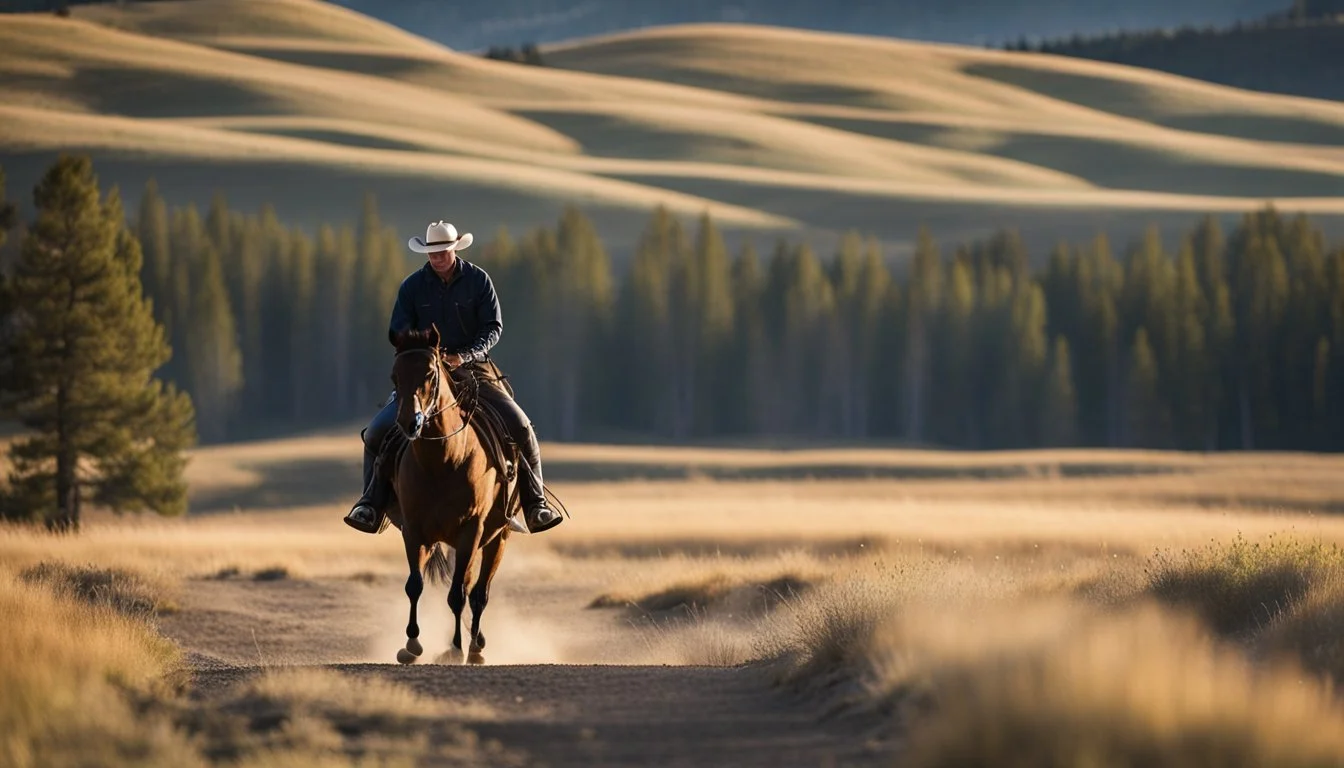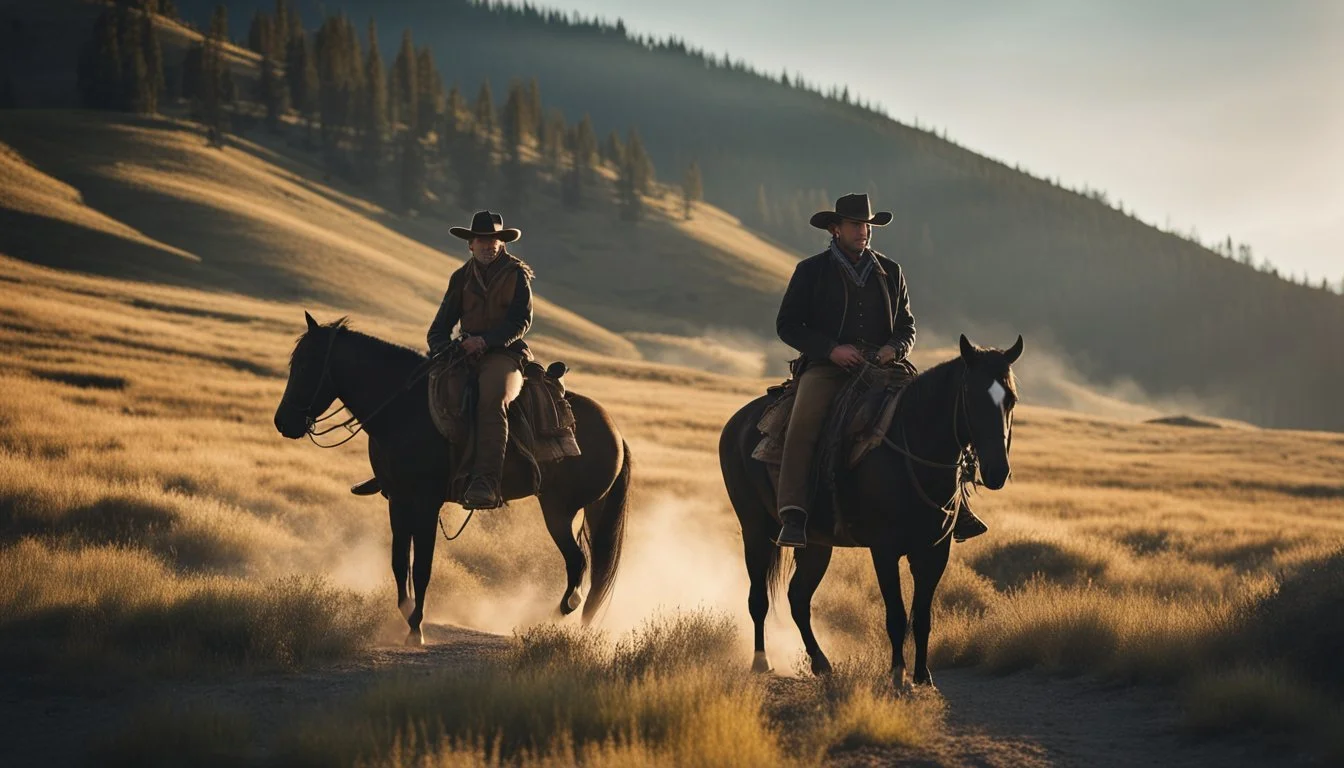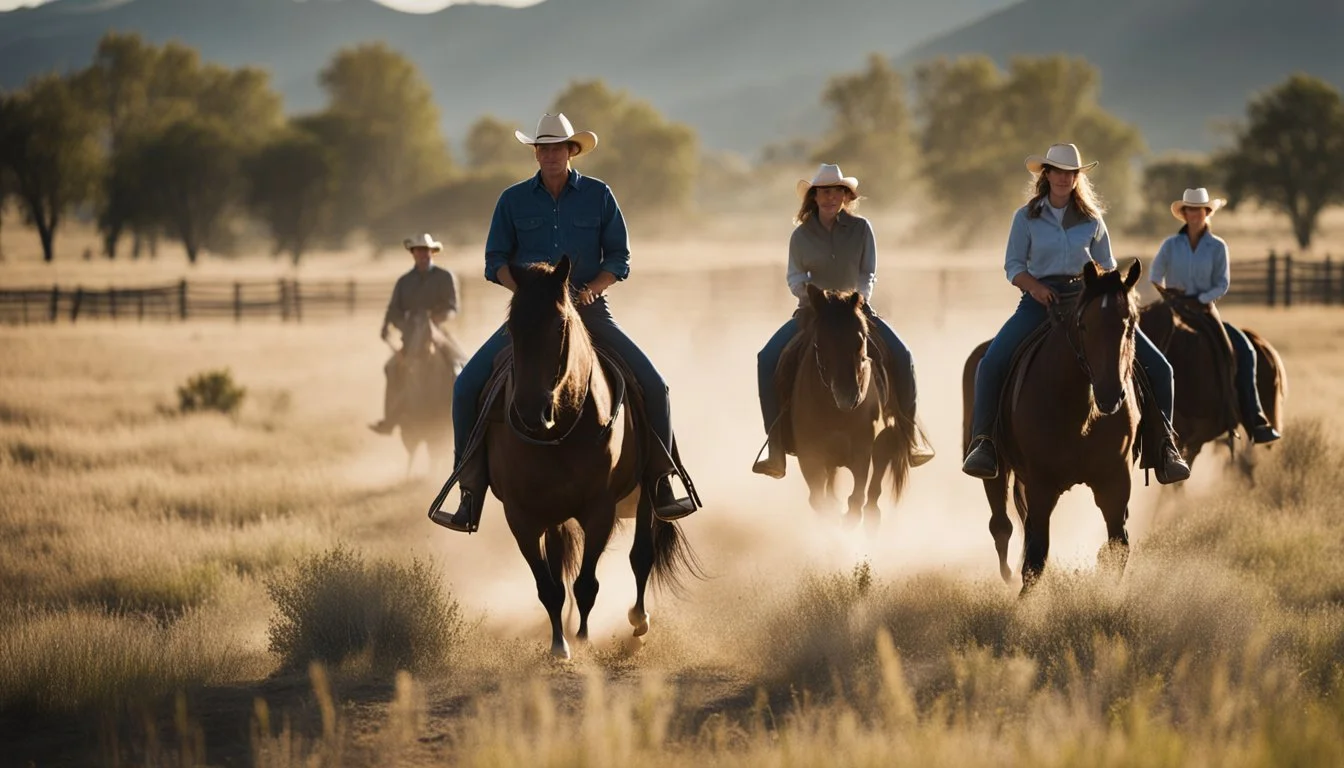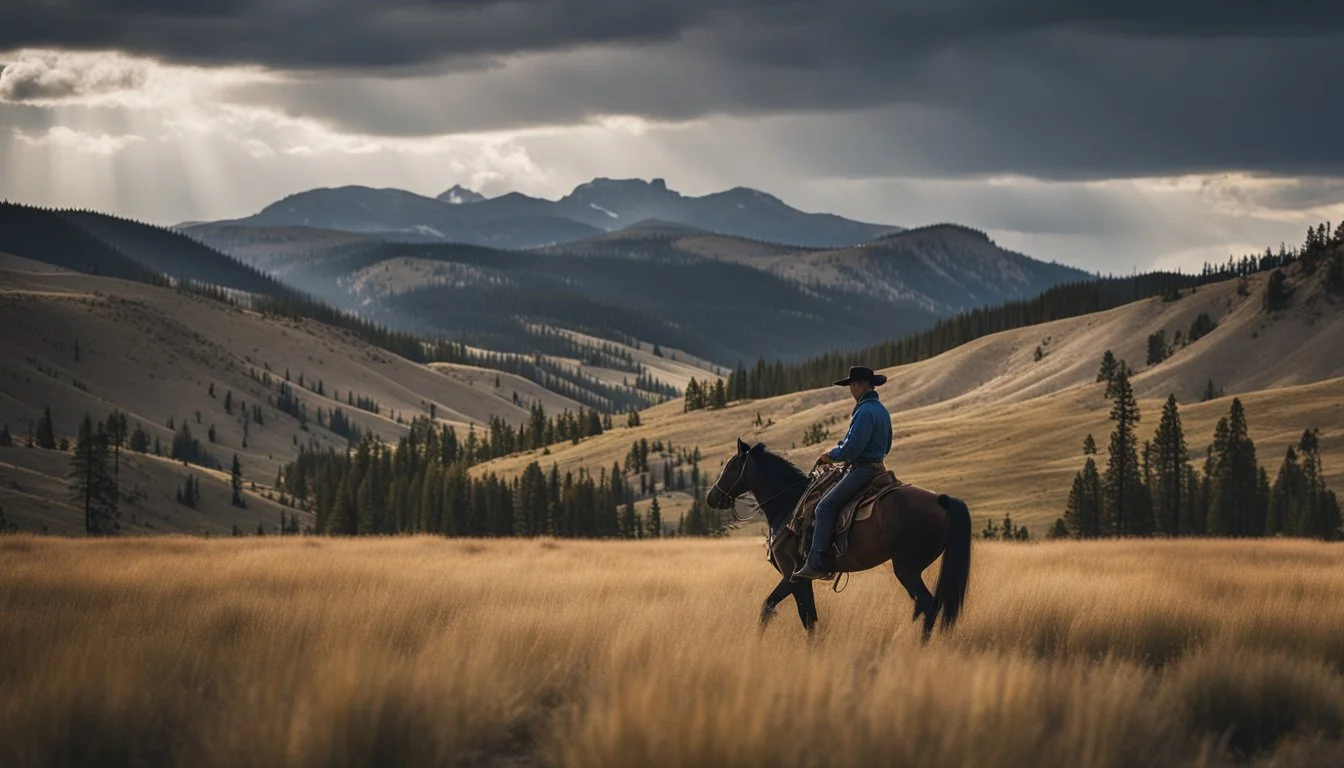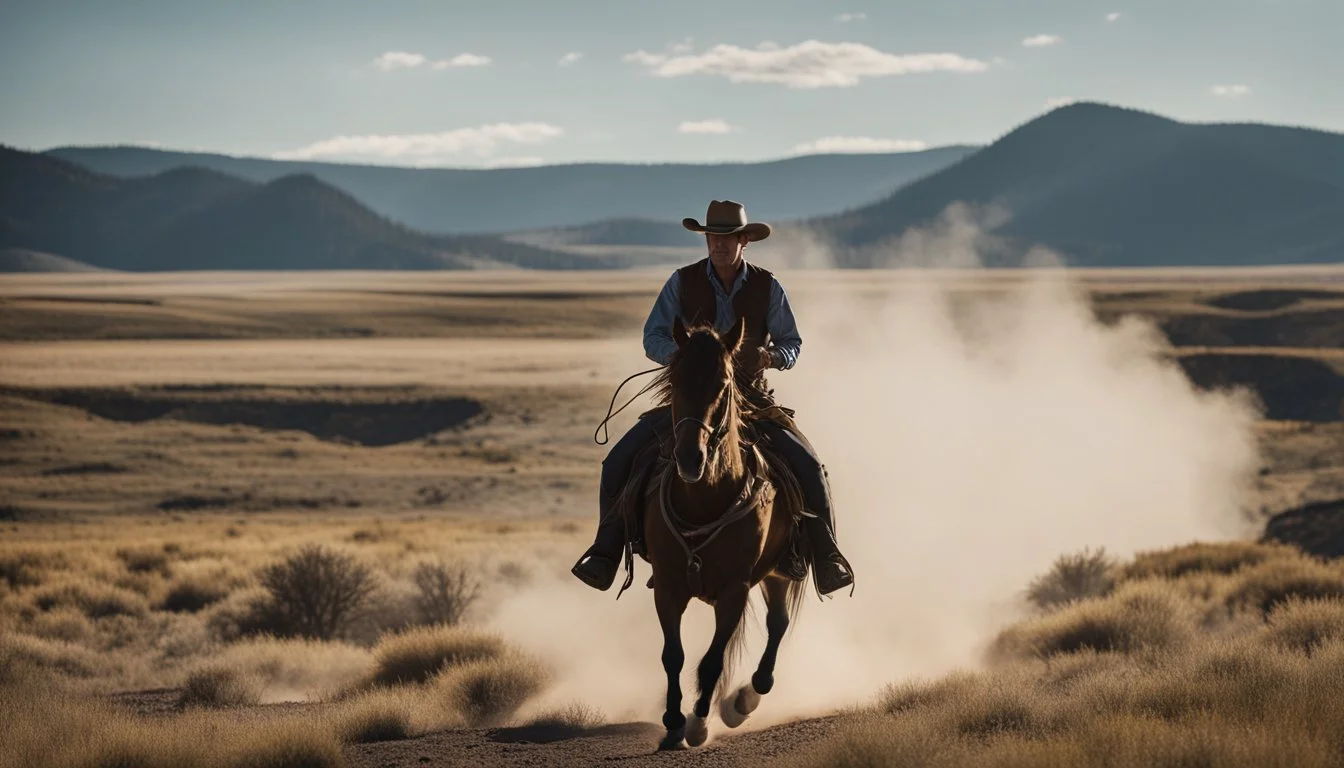Market Equities' Ranch Takeover Could Spell Doom for the Dutton Family
Yellowstone's Dutton family has long fought to protect their sprawling Montana ranch from external threats. Market Equities, a powerful corporate entity, has been their most formidable adversary in recent times. The company's relentless pursuit of the Dutton land for development has been a central conflict in the series.
If Market Equities were to successfully purchase a neighboring ranch, it could significantly alter the power dynamics in the region and potentially increase pressure on the Duttons. Such a move would give the corporation a strategic foothold near the Yellowstone Dutton Ranch, potentially allowing them to encroach on the property from multiple angles.
This hypothetical scenario raises intriguing questions about the future of the Dutton legacy and the preservation of Montana's rugged landscape. It would likely force the family to reassess their defensive strategies and potentially seek new alliances to safeguard their ancestral lands.
Background of Yellowstone Dutton Ranch
The Yellowstone Dutton Ranch stands as a cornerstone of Montana's ranching heritage. Its vast acreage and historical significance have made it a target for developers and a symbol of the American West.
Historical Significance
The Dutton Ranch traces its roots back to 1883 when the Dutton family first settled in Montana. James Dutton, the patriarch, established the ranch during a time of westward expansion. Over generations, the Duttons expanded their holdings, creating one of the largest contiguous ranches in the United States.
The ranch's history is intertwined with key events in Montana's development. It survived economic downturns, harsh winters, and changing agricultural practices. The Duttons' resilience in maintaining their land through various challenges has become legendary in the region.
Current Ownership and Management
Today, the Yellowstone Dutton Ranch remains in family hands. John Dutton, the current patriarch, oversees operations with the help of his children. The ranch employs numerous workers and contributes significantly to the local economy.
Management of the ranch involves traditional cattle operations alongside modern agricultural techniques. The Duttons face ongoing challenges from land developers, environmental regulations, and market fluctuations.
John Dutton's Leadership
John Dutton, portrayed by Kevin Costner in the television series "Yellowstone," leads the ranch with unwavering determination. His leadership style combines old-school ranching values with strategic thinking to protect the family's legacy.
Dutton's approach often puts him at odds with external forces threatening the ranch. He navigates complex political and business landscapes to maintain control of the land. John's children play crucial roles in ranch operations, each bringing unique skills to support their father's vision.
His leadership extends beyond the ranch, influencing local politics and community affairs. John Dutton's commitment to preserving the ranch shapes the narrative of "Yellowstone" and reflects real-world tensions in land use and rural development.
Market Equities' Interest in the Ranch
Market Equities has set its sights on acquiring land in Paradise Valley, including property adjacent to the Yellowstone Dutton Ranch. The company's aggressive expansion plans have put it on a collision course with the Dutton family.
Corporate Intentions and Strategy
Market Equities aims to transform Paradise Valley into a lucrative real estate development. Their vision includes building an airport and ski resort, potentially bringing significant changes to the area. The company offered John Dutton $500 million for 50,000 acres of his ranch, demonstrating their willingness to invest heavily in the region.
Market Equities' strategy involves acquiring key properties and leveraging their financial resources to overcome local resistance. They've shown a readiness to use legal and political channels to achieve their goals.
Potential Impacts on the Local Economy
The proposed developments by Market Equities could bring substantial economic changes to Paradise Valley. New jobs would likely be created in construction, hospitality, and tourism sectors. Property values might increase, benefiting some landowners while potentially pricing out others.
However, the influx of development could also alter the area's traditional ranching culture and natural landscape. This transformation might lead to increased urbanization and a shift away from agricultural activities.
Past Encounters with the Duttons
Market Equities' efforts have been consistently thwarted by the Dutton family, particularly Beth Dutton. Beth's financial acumen allowed her to launch a counteroffensive against the company. She acquired controlling interest in Schwartz & Meyer, giving her leverage over some of the lands Market Equities sought.
The conflict escalated when Market Equities hired Sarah Atwood to deal with the Duttons. This move intensified the power struggle, leading to legal battles and political maneuvering. The company's attempts to use the Attorney General's office against the Duttons further strained relations.
Cultural and Political Ramifications
Market Equities' acquisition of the neighboring ranch would spark significant changes in the region's social fabric and power dynamics. Local communities and political structures would face new challenges and opportunities.
Effect on Native American Communities
Thomas Rainwater, the Native American leader, would likely view Market Equities' expansion as a threat to tribal interests. The corporation's increased presence could encroach on ancestral lands and disrupt traditional ways of life.
Native American communities might experience job growth from new development projects. However, this economic boost could come at the cost of cultural preservation.
Rainwater might seek legal avenues to protect tribal rights and negotiate for greater influence in regional decision-making processes.
Local Political Dynamics
The influx of corporate money would reshape local politics. Market Equities' financial power could sway elections and policy decisions in their favor.
Small-town officials might find themselves caught between supporting economic growth and preserving community values. Some politicians could align with Market Equities, while others might rally against outside influence.
Tensions between pro-development and conservation factions would likely intensify. Public debates and town hall meetings would become more heated as residents grapple with the changing landscape.
Local environmental groups might gain prominence, pushing for stricter regulations on corporate activities to protect natural resources.
The Dutton Family's Response
The Dutton family's reaction to Market Equities acquiring a neighboring ranch would be swift and strategic. Their response would likely involve legal maneuvers, alliance-building, and a renewed focus on preserving their legacy.
Strategic Alliances and Conflicts
John Dutton would seek to fortify his position by forming alliances with other local ranchers and influential figures. He might reach out to Governor Lynelle Perry for political support. Beth Dutton, known for her business acumen, would likely spearhead efforts to undermine Market Equities' plans.
Kayce and Rip Wheeler could be tasked with on-the-ground operations, monitoring Market Equities' activities and protecting Yellowstone's borders. Jamie Dutton's legal expertise might be reluctantly called upon, despite family tensions.
The Duttons could also explore partnerships with conservation groups or Native American tribes to create a united front against corporate expansion.
Legal and Ethical Considerations
The family would scrutinize Market Equities' land acquisition for any legal vulnerabilities. They might challenge zoning laws, environmental regulations, or property rights.
Beth could investigate Market Equities' business practices for potential ethical breaches or conflicts of interest. The Duttons might leverage their connections in state government to propose legislation favorable to ranch owners.
Jamie's role as Attorney General could be crucial in navigating legal challenges. However, his divided loyalties might complicate matters.
The family could also consider more aggressive tactics, such as staged protests or media campaigns to sway public opinion against Market Equities.
The Role of Legacy and Inheritance
John Dutton's commitment to preserving the ranch for future generations would intensify. He might accelerate plans to transfer ownership to his children or establish a trust to protect the land.
Beth and Kayce would likely become more involved in long-term planning for the ranch's future. This could include exploring sustainable farming practices or diversifying income streams to strengthen the ranch's financial position.
The threat of inheritance tax looming over the ranch's future would become a more pressing concern. The family might seek creative solutions to minimize tax burdens while keeping the land intact.
Rip Wheeler, as John's loyal right-hand man and Beth's husband, would play a key role in safeguarding the Dutton legacy. His dedication to the ranch and family would be put to the test in the face of this new threat.
Character Analysis and Development
The Dutton family members face unique challenges as Market Equities threatens their ranch. Their individual responses and evolving roles shape the conflict's trajectory.
Beth Dutton's Financial Acumen
Beth Dutton employs her sharp business skills to counter Market Equities' advances. She leverages her corporate experience to outmaneuver the company at every turn. Beth's strategic moves include buying land around the ranch through various companies she worked for.
She then transfers ownership of these parcels to the state for conservation use. This clever tactic prevents development and creates a buffer zone around the Dutton property.
Beth's fierce loyalty to her family drives her actions. She's willing to take extreme measures to protect their legacy and way of life.
Kayce Dutton's Changing Role
Kayce Dutton's perspective shifts as the conflict with Market Equities intensifies. He begins to question his place on the ranch and his family's unyielding stance.
In a surprising turn, Kayce and his wife Monica purchase a smaller ranch in rural Montana. They relocate there with their adopted son, Carter.
This decision marks a significant change for Kayce. He chooses personal freedom over the demands of the larger Dutton ranch, distancing himself from the ongoing battle.
Jamie Dutton's Political Ambitions
Jamie Dutton's role becomes increasingly complex as he balances his political career with family loyalty. His position as Attorney General puts him at odds with Market Equities' plans.
Jamie's legal expertise proves valuable in the fight against the corporation. He works to find legal loopholes and strategies to protect the ranch.
However, his personal ambitions often conflict with the family's goals. This tension creates a constant struggle for Jamie as he navigates his divided loyalties.
Potential Outcomes and Scenarios
Market Equities acquiring the neighboring ranch could dramatically alter Yellowstone's landscape. This pivotal move would likely impact cultural preservation and have significant economic ripple effects.
Preservation of Cultural Heritage
If Market Equities purchases the adjacent ranch, the preservation of Montana's cultural heritage could be at risk. The company's development plans might encroach on historically significant areas or disrupt traditional ranching practices.
Native American sacred sites could face threats from construction projects. Local community traditions tied to the land might be displaced by new commercial ventures.
However, Market Equities could potentially implement preservation measures as part of their development strategy. This could include setting aside protected areas or incorporating historical elements into their plans.
Short-Term and Long-Term Economic Effects
The immediate economic impact of Market Equities' acquisition would likely be substantial. A surge in construction jobs and increased local spending could boost Montana's economy in the short term.
Long-term effects are more complex. New developments might attract tourists and businesses, potentially increasing tax revenue for the state. However, this could come at the cost of traditional industries like ranching.
The influx of outside investment might drive up property values, benefiting some residents while pricing others out of the market. Changes in land use could affect agricultural production and related industries.
Senator Lynelle Perry's stance on the deal could influence its reception and implementation. Her support or opposition may sway public opinion and impact the project's progression.
Impact on Yellowstone's Storytelling
Market Equities purchasing a neighboring ranch would dramatically alter the show's dynamics. This hypothetical scenario would intensify existing conflicts and introduce new narrative elements.
Narrative Shifts in the Series
The acquisition would accelerate the clash between tradition and progress. Yellowstone Season 5 might explore the Duttons' struggle against an even more powerful Market Equities. The "Train Station" could see increased use as the family fights to maintain control.
Taylor Sheridan's neo-Western drama would likely delve deeper into corporate tactics and legal battles. The show might introduce new characters representing Market Equities' expanded interests.
A potential spinoff could focus on the now-enlarged Market Equities operation, offering a different perspective on the Montana land wars.
Themes of Modernity vs. Tradition
The contrast between the "concrete jungle" and the "wildland" would become more pronounced. Yellowstone's storytelling would likely emphasize the threat to the ranching way of life.
The series might explore the environmental impact of expanded development. This could lead to storylines about conservation efforts and political maneuvering.
Characters might grapple with the allure of modern conveniences versus the preservation of their heritage. The show could examine the psychological toll of rapid change on long-time residents.
Fan Theories and Speculations
Fans have developed intriguing theories about Market Equities' potential acquisition of the neighboring ranch. These speculations explore possible character developments and hint at future plot twists that could reshape the Yellowstone narrative.
Potential Character Arcs
Beth Dutton's cunning might lead her to orchestrate a complex scheme involving Market Equities. Some fans believe she could use her insider knowledge to manipulate the company's land deals. This theory suggests Beth might leverage her past connections to gain an upper hand in negotiations.
Kayce Dutton's loyalty could be tested if Market Equities makes a tempting offer. Viewers speculate his role as Livestock Commissioner might conflict with family interests. Angela Blue Thunder's influence on tribal affairs might also play a crucial part in land ownership disputes.
Foreshadowed Events
Season 5 has dropped subtle hints about Market Equities' true motives. Fans theorize the company might have discovered valuable resources beneath Yellowstone land. This could explain their aggressive pursuit of neighboring properties.
Some viewers predict a dramatic finale where the Duttons face losing their legacy. Christina's return might coincide with a pivotal moment in the ranch's fate. Others speculate that a surprise alliance between the Duttons and Market Equities could emerge, reshaping power dynamics in the region.
Influence on Pop Culture and Media
Yellowstone's portrayal of ranch life and land disputes has sparked widespread interest in neo-Western dramas. The show's impact extends beyond entertainment, shaping public perceptions and media coverage of rural America.
Yellowstone's Cultural Impact
Yellowstone has become a cultural phenomenon, influencing fashion trends and tourism. The Dutton family's iconic style has inspired clothing lines and accessories. Montana tourism has surged as fans seek to experience the show's breathtaking landscapes firsthand.
The series has entered the cultural lexicon, with catchphrases and references appearing in everyday conversations. Social media platforms buzz with Yellowstone-related content, from memes to fan theories. The show's popularity has even led to the creation of Yellowstone-themed apps and games.
Media Coverage and Public Perception
News outlets regularly cover Yellowstone's storylines and behind-the-scenes details. Yahoo and other media platforms feature articles analyzing the show's portrayal of land conflicts and family dynamics. This coverage has sparked discussions about real-world issues facing rural communities.
The series has also faced scrutiny for its depiction of Native American characters and land ownership disputes. Critics and supporters alike debate the show's accuracy and potential influence on public perceptions of these complex topics.
Yellowstone's success has led to increased interest in neo-Western dramas across various media platforms. Streaming services and networks have greenlit similar projects, hoping to capture the audience's fascination with modern cowboy stories.


